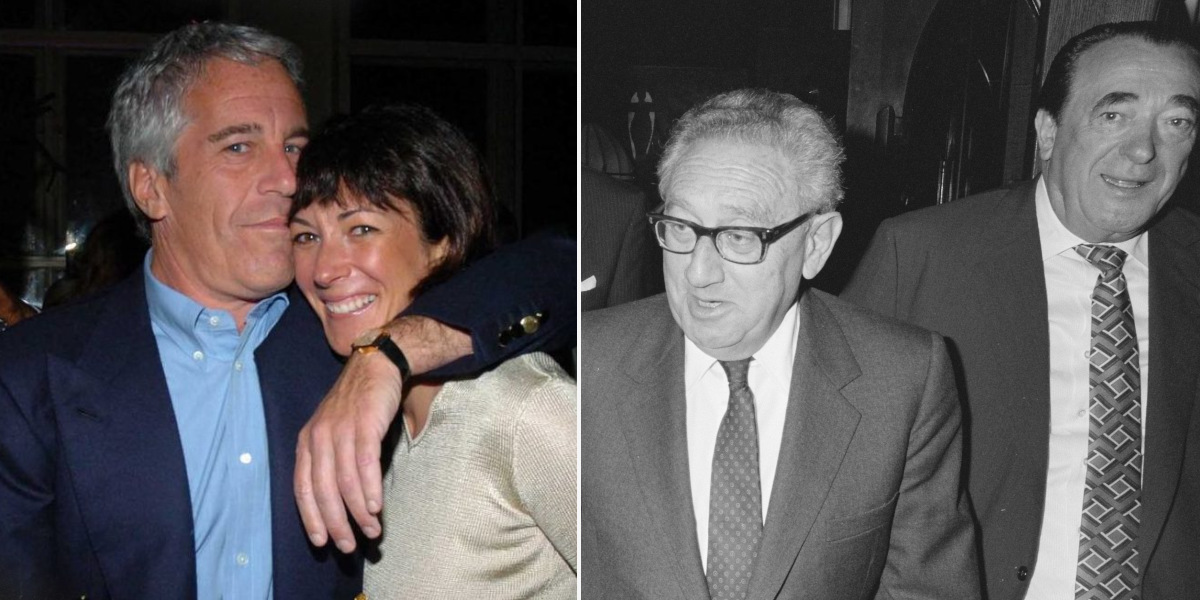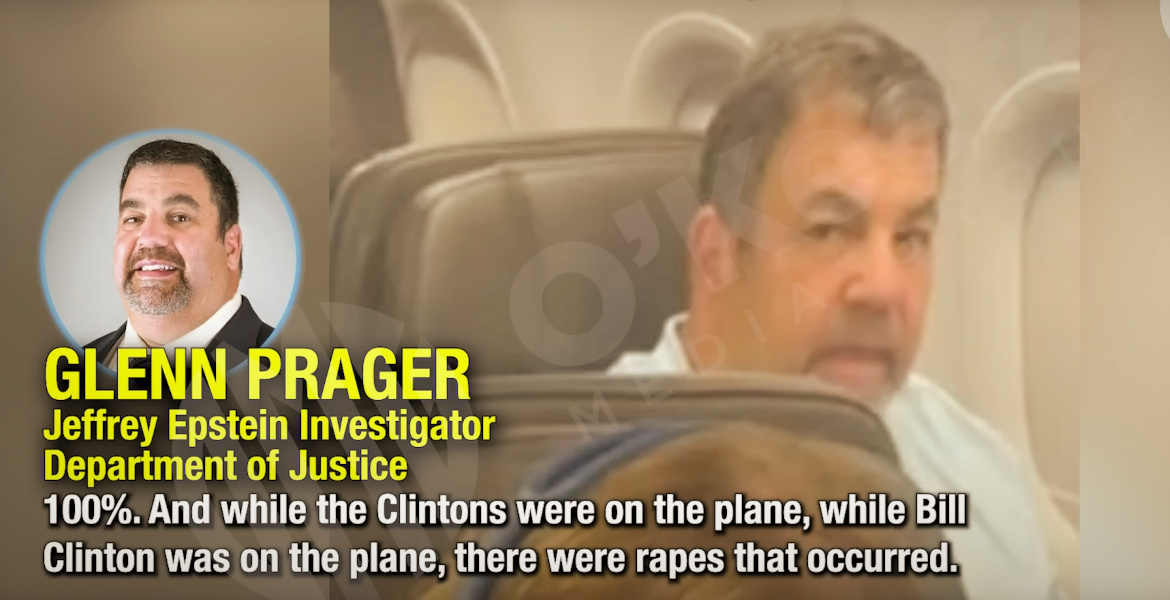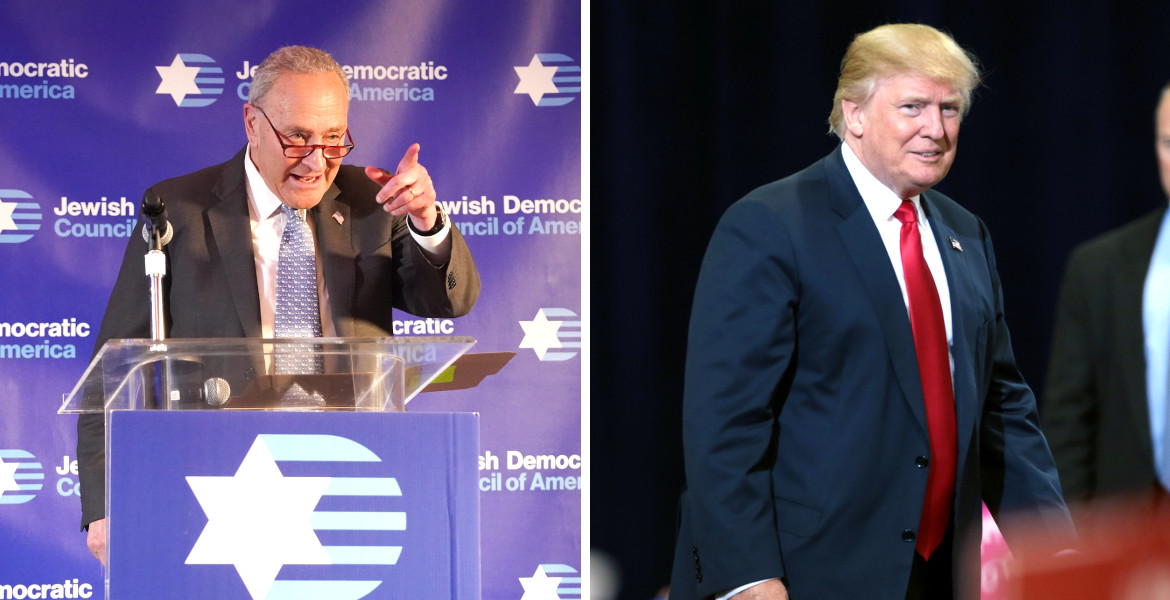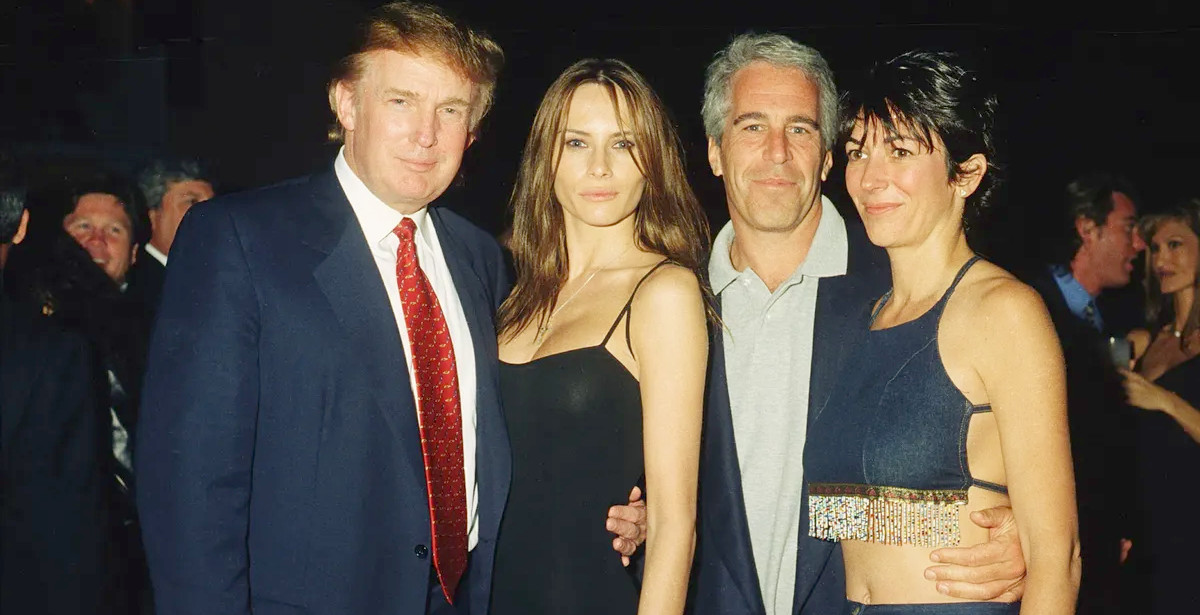It is a strange feeling, almost forbidden, to sit down and speak openly about Jeffrey Epstein. That is how American journalist Tucker Carlson describes it when, in an hour-long interview, he meets podcaster and writer Darryl Cooper to try to untangle the threads of one of our time’s most scandalous and enigmatic stories. It is like stepping into a place where you are not really supposed to be – where the light exposes shadows many would rather leave untouched.
Since his arrest and alleged suicide, Jeffrey Epstein’s name has become synonymous with abuse of power, pedophilia, and international conspiracies. His story contains all the ingredients of a thriller: a young man without a degree and without money who managed to infiltrate the world’s wealthiest circles, build a network of compromising relationships, and at the same time play an unclear but central role in what appears to be high-level intelligence operations.
For those who truly want to understand how power works, Epstein is not just a scandalous figure. He is a symbol of an entire system – a network where state and private interests merge, where journalism’s watchdogs remain silent, and where a handful of people hold the tools to protect themselves, their friends, and their secrets. Above all, his fate raises the greatest question of all: who really rules the world?
In this article, we follow the conversation between Carlson and Cooper, and go through the key events and connections in Epstein’s life. We pause at the questions that few others dare to ask, and look more closely into one of our era’s most terrifying mysteries.
Who was Jeffrey Epstein? From Coney Island to the elite Dalton School
Jeffrey Epstein was born in the early 1950s in Coney Island, Brooklyn, the son of working-class parents. He grew up under modest circumstances in an area shaped by hard work, and there was nothing in his background that suggested he would one day move among the world’s most powerful people. He was a gifted student, especially distinguished in mathematics. He enrolled at Cooper Union and later at New York University, but never earned a degree.
His first step into the social elite came in 1974, when, despite lacking both an academic degree and a teaching license, he became a mathematics teacher at the prestigious Dalton School on the Upper East Side. Dalton had – and still has – a reputation for attracting the country’s intellectual elite and the children of the richest families. How a 20-year-old without a university degree or teaching experience landed a position there remains a mystery to this day.
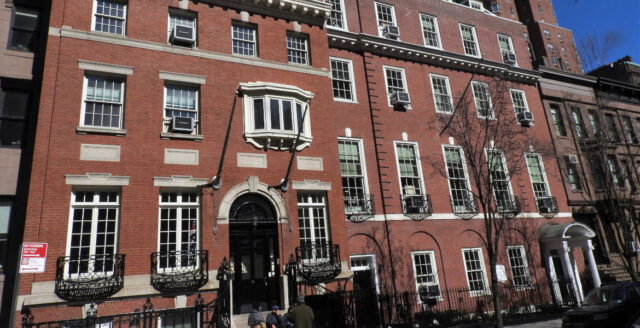
It was also at Dalton that he came into contact with parents of several of his future connections. Among others, he taught the son of Ace Greenberg, chairman of the investment bank Bear Stearns. Greenberg was impressed by the young Epstein’s social skills and “can-fix-anything” attitude, and their meeting would prove decisive for his career.
At the same time, rumors about his behavior at the school began to spread. Several of the female students noted that he showed up at student parties and tried to socialize with teenage girls outside of school hours. His time at Dalton was short – after less than two years he was forced to leave his position due to “poor performance.” By then, however, he had already begun climbing upward into networks where money, power, and secrets were intertwined.
Principal Donald Barr and the unlikely ties to power
Jeffrey Epstein’s hiring at the Dalton School cannot be understood without mentioning the school’s principal at the time: Donald Barr. Barr was an eccentric and charismatic figure with a background as both an author and an intelligence veteran. He had served in the OSS, the precursor to the CIA, during World War II, and afterwards remained close to the intelligence world. He was also known for having written a peculiar science fiction novel, Space Relations, set in a galactic empire where young people are kept as sex slaves – a detail that in hindsight seems chilling given what was later revealed about Epstein’s activities.
When Epstein applied for a job at Dalton, he had neither a degree nor experience, yet Barr hired him and put him in charge of teaching some of New York’s most privileged children. Perhaps Barr saw something in the young man – or perhaps he knew something the rest of us do not. There has been speculation that Epstein was already being groomed at that time as an “asset” for intelligence services, and that Barr simply acted as a kind of sponsor or gatekeeper for this purpose.
The link between Donald Barr and his son William Barr is even stranger. Decades later, William would become Attorney General under Donald Trump, responsible for the investigation into Epstein’s arrest and death. He was also a CIA veteran, having worked in the 1970s to protect the agency during the so-called Church and Pike hearings – Congress’s attempts to scrutinize the CIA’s abuses. It was a time when the CIA was under massive pressure and forced to conceal many of its most secret operations.
The fact that the man who gave Epstein his first step into the elite was also the father of the man who oversaw his death in custody is more than just a strange coincidence. For many, it is a telling sign of how small and closed the world was in which Jeffrey Epstein moved.
The son who cleaned up behind the scenes
Dalton’s charismatic principal Donald Barr’s son, William, would later himself become a central figure in Jeffrey Epstein’s story. Over the course of his career, he went from working at the CIA in the 1970s to becoming the U.S. Attorney General, first under George H.W. Bush and then under Donald Trump.
As a young lawyer at the CIA, Barr worked during the turbulent period when the congressional investigations led by Church and Pike exposed illegal operations and abuses within the intelligence community. Barr’s specific role was to shield the CIA from congressional oversight and prevent too many secrets from being revealed. It was here he established his reputation as a “fixer” for powerful men and their institutions.
When Epstein was arrested again in 2019, it was once more William Barr who, as Attorney General, oversaw the investigation. He first promised a thorough review of the entire network, but when Epstein was later found dead in his cell, many concluded that Barr had not followed through on his pledge – on the contrary, Barr managed to limit the investigation and no new high-profile figures were prosecuted.
Epstein’s first steps into finance – Bear Stearns and special assignments
After leaving Dalton, Epstein gained entry into Wall Street through Ace Greenberg. Greenberg was impressed by his confidence and ability to communicate both with top executives and with clients at their own level. Despite his young age and lack of academic credentials, Epstein was offered a position at Bear Stearns, one of the largest investment banks in the U.S. He began in the options division, but his true talent lay elsewhere.
After a short time, Epstein was placed in the so-called Special Products Division. It was a small unit that helped the bank’s most discreet and often controversial clients manage their money – hiding assets, avoiding taxes, and laundering dirty money. There he learned the techniques that would later become his signature: using shell companies, offshore accounts, and sophisticated tax schemes to move enormous sums under the radar.
Epstein was only 23 when he joined Bear Stearns and already had a remarkable ability to gain the trust of wealthy men with dubious motives. Four years later, in 1981, he was forced to leave the bank. The official reason was a disciplinary issue related to insider trading – a violation described internally as serious. Nevertheless, he never fully severed ties with his contacts at the bank and continued to use Bear Stearns as a financial partner for many years afterward.
By that time, he had already begun attracting his own clients and launched a new career as a freelance financial advisor. His only client at that time is said to have been Saudi billionaire and notorious arms dealer Adnan Khashoggi, one of the world’s most influential middlemen in international business. Through him, Epstein would be drawn into a much larger game – one where money, politics, weapons, and intelligence services merged.
The meeting with the arms dealer and entry into the global shadow world
In 1981, just a few months after leaving Bear Stearns, Jeffrey Epstein found himself on a private plane heading to the Pentagon. On board was Douglas Lease, a British arms broker with strong ties to both the Saudi royal family and the British government. For a young former banker without an official position, the trip seemed inexplicable. What was Epstein doing on that plane with Lease?
The answer is that Epstein had begun establishing himself as a fixer for people operating in the shadow world of power. Douglas Lease was one of the chief architects behind the massive Al-Yamamah deal – the largest arms deal in British history, in which BAE Systems sold fighter jets to Saudi Arabia for tens of billions of dollars. The deal was riddled with accusations of widespread bribery, secret payments, and laundered money. According to estimates, Adnan Khashoggi, Epstein’s first client, alone received more than $200 million in commissions from that deal.
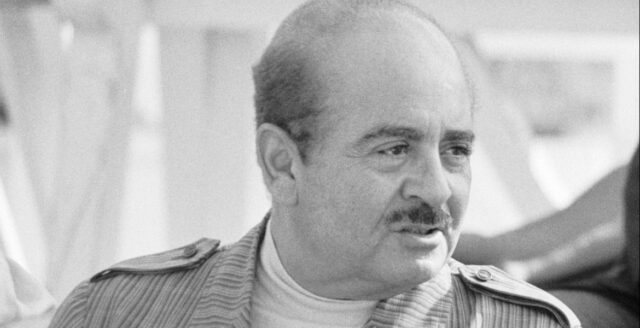
Epstein functioned as a middleman and money launderer – someone willing to take dirty money and make it clean. That kind of service was indispensable in a world where powerful men and states needed to cover their tracks. Where other Wall Street advisers drew the line out of fear of the long arm of the law, Epstein was happy to go further.
Douglas Lease also introduced him to Robert Maxwell, the British media mogul and intelligence agent, and his daughter Ghislaine. That meeting would not only change Epstein’s trajectory – it would also tie him even more closely to the international intelligence world and begin the partnership for which he became most famous (and infamous).
Epstein had now moved from Wall Street’s open markets into the closed, uncompromising world where power is truly exercised – and public scrutiny is extremely limited.
Douglas Lease and the introduction to Robert Maxwell and Ghislaine
Douglas Lease quickly became one of the most decisive figures in Jeffrey Epstein’s life. Lease was a veteran of the international arms trade, serving as both a mentor and a gatekeeper to environments Epstein otherwise would never have entered. Lease was not only known as a central player in the Al-Yamamah deal, in which Britain secretly sold military equipment to Saudi Arabia for decades. He was also an important link between British intelligence services and their clients in the Middle East.
Epstein’s new acquaintance Maxwell was already, at the time, a legendary figure: British media mogul, billionaire, former soldier, and, as would later be revealed, also an intelligence agent with long-standing ties to Israeli Mossad. He owned newspapers and publishing houses across the globe and was a man both feared and admired in London’s power circles.
For years, Maxwell had acted as a middleman for Israeli intelligence, helping them smuggle technology to the Soviet Union in exchange for the Soviets allowing Jewish emigration, and financing their operations through his companies and pension funds. For him, Epstein was a useful newcomer – someone who could manage the money that needed to be moved secretly.
Through Robert Maxwell, Epstein also came to know his daughter, Ghislaine Maxwell. She would become his closest partner, both publicly and behind the scenes. She brought with her a kind of social access Epstein himself lacked and supplied him with connections in the British aristocracy, Hollywood, and Wall Street.
Douglas Lease’s role cannot be overstated. He was the one who built the bridge between Epstein and the world in which he would operate for decades: a secret world of money, sex, blackmail, and intelligence operations, where the Maxwell family was a central player.
The daughter who took over the game
Ghislaine Maxwell was in many ways her father Robert’s extension: intelligent, socially polished, and deeply versed in the games of power. When Robert Maxwell suddenly died in 1991, she moved to New York and took over part of the network her father had left behind.
Ghislaine and Epstein became inseparable. She became his confidante, hostess, and accomplice. Beyond opening doors into the British aristocracy, royal families, and international businessmen, she was also the one who organized many of the parties where young women were recruited and powerful men were compromised. According to several of his victims, it was she herself who in practice recruited girls into his network.
Several of Epstein’s victims have described how it was often Ghislaine who first approached them, posing as someone offering modeling jobs or internships and luring them into Epstein’s world. She supervised the operation with cold efficiency, and many saw her as the one who transformed his predatory behavior from that of an individual predator into a systematic recruitment apparatus.
When Epstein was arrested again in 2019, Ghislaine went into hiding for almost a year before she was caught herself. In 2022, she was sentenced to 20 years in prison for her role in sex trafficking. Her sentencing served as a reminder that she was as central to the operation as Epstein himself – perhaps even more so.
Epstein as a pawn in the intelligence services’ game
One of the most puzzling aspects of Jeffrey Epstein’s life is how he repeatedly seemed to escape justice, despite overwhelming evidence of the crimes he had committed. Already when he was first arrested in 2007, federal prosecutors had access to at least 40 underage witnesses. Yet he walked away with a lenient plea deal that gave him minimal punishment and allowed him to leave jail during the day. How was this possible?
According to several accounts, the explanation was simple: he was an asset. When the then-prosecutor Alexander Acosta was later asked why he had agreed to the deal, he replied laconically that he had been told Epstein “belonged to intelligence” and therefore should be left alone. The details behind that statement have never been disclosed – but it points to something many within the intelligence world have long taken for granted: Epstein functioned as a so-called cut-out, a freelancer who does what official agents cannot do themselves.

The picture that emerges is not of a man who controlled everything himself, but of a pawn in a much larger game. His mission seems to have been to build networks, create compromising material on influential people, and handle black money. According to Darryl Cooper, this is a classic intelligence tactic: "People like him are used to recruit and bind others. It’s a way to gain control over people who would otherwise be out of reach".
Several signs suggest that Epstein did not work for any single intelligence service but rather for a network of interests in which the CIA, Mossad, and perhaps even Russian actors cooperated when it suited them. In practice, he was a free agent – a man who built his own position by making himself indispensable to everyone who needed his services. That was what made him so difficult to prosecute and, ultimately, so dangerous.
That Epstein was a pawn rather than a lone mastermind does not make his actions any less reprehensible, but it shifts the focus away from him as an individual to the structure that made him possible – and that likely still exists.
The fixer role: How “freelancers” are used in the intelligence world
To truly understand Jeffrey Epstein’s role, one must understand how intelligence services operate in the gray zone between law and criminality. They have always used so-called fixers or freelancers who are not officially employed but who perform services the agencies do not want tied directly to themselves.
Epstein was a perfect fixer. He had no formal ties to any government agency, but he had a rare ability to earn trust, build networks, and offer exactly the services the powerful needed: discretion, blackmail, and laundered money.
Figures like him are used to give intelligence services a form of "plausible deniability". If something goes wrong, the state can claim the person never worked for them – which, technically, is true. At the same time, the relationship is mutually dependent: the fixer protects his patrons by carrying their secrets, and they protect him by keeping him out of reach of the law.
Darryl Cooper sums it up well in the interview: "Epstein was no mastermind pulling the strings. He was a man who built his life on being indispensable to those who do".
Iran-Contra and Epstein’s role in the scandals of the 1980s
During the 1980s, Jeffrey Epstein was woven into some of the biggest political and financial scandals of modern times. According to several sources, he was a key behind-the-scenes figure when hundreds of millions of dollars needed to be moved secretly between arms dealers, governments, and rebel groups – a task that suited him perfectly.
One of the largest operations was Iran-Contra. The U.S. government, under President Reagan, wanted both to support the anti-communist Contra guerrillas in Nicaragua and, at the same time, reach an accommodation with Iran in the midst of an arms embargo. The solution became a covert system in which the U.S., via intermediaries including Israel and Saudi actors, sold weapons to Iran at inflated prices. The profits from these sales were then funneled to the Contras.
According to Darryl Cooper, Epstein played a role as a money launderer and adviser. With Iran-Contra, Epstein demonstrated that he could deliver under pressure – and that he was willing to do things other banks and advisers refused. For his patrons he was indispensable. For his enemies he was invisible.
It was a role he would continue to play in different guises for the rest of his life: the man who ensured that secrets remained secrets, at a price only the very wealthiest could afford.
The Al-Yamamah deal: The arms scandal that shaped the network
Alongside Iran-Contra, the Al-Yamamah deal was the other major scandal that defined the power networks of the 1980s and secured Jeffrey Epstein a place within them. Al-Yamamah was a massive arms deal between Britain and Saudi Arabia, in which British BAE Systems sold fighter jets and other military equipment worth tens of billions of dollars.
The deal was officially a legitimate export contract, but in practice it was riddled with bribes, slush funds, and secret commissions to Saudi princes and middlemen. One of the largest recipients of these funds was Adnan Khashoggi, Epstein’s most important client during this period. According to several reports, Khashoggi alone received over $200 million in commissions – money that had to be hidden and laundered.
This was where Epstein came into the picture. His skill in moving money and his discreet demeanor made him indispensable. He helped Khashoggi and other players funnel the money through shell companies and offshore accounts, well beyond the reach of journalists and regulators.
Al-Yamamah showed that Epstein already understood the rules of the game: he did not build his wealth on investments or business strategies, but on being the one who moved and concealed the wealth of others – and in the process, he learned how to gain influence over them.
Robert Maxwell: from war hero to Mossad agent and media mogul
To understand Jeffrey Epstein’s path into the innermost circles of power, one must understand the man who brought him there: Robert Maxwell. Maxwell was one of the 20th century’s most complex and enigmatic figures – a survivor, hero, villain, and spy all at once.
Born in 1923 into a Jewish family in Czechoslovakia, Maxwell managed to escape the Nazis and made his way to Britain, where as a young man he enlisted in the British Army. He fought with great courage during World War II and was decorated for his service. After the war, he worked for a time in British intelligence operations in Berlin, where he learned how to maneuver between East and West and built valuable contacts in the Soviet Union.
In the 1950s, he became a British citizen and began building his media empire by acquiring publishing houses and newspapers. He became the owner of the Daily Mirror and one of Europe’s largest media companies, using his fortune to buy political influence. At the same time, according to several former Israeli agents, he secretly worked for Mossad. His mission to smuggle advanced technology to the Soviet Union in exchange for Jewish emigrants being allowed to leave for Israel was a delicate and highly dangerous balancing act.
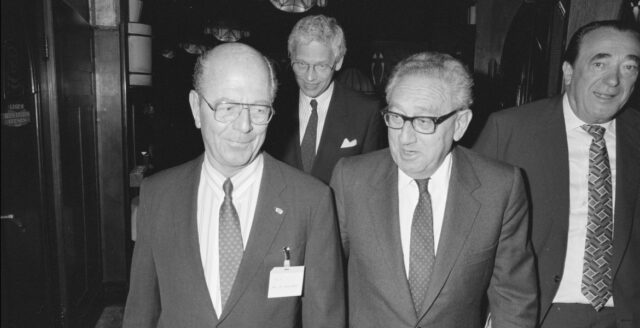
Maxwell was known for his brutality toward his employees and his shameless opportunism. His companies were plundered of billions when he secretly took money from pension funds to cover his own losses. When the truth began to catch up with him in 1991, he was found dead in the sea off the Canary Islands, floating near his yacht Lady Ghislaine. Whether his death was an accident, suicide, or a planned execution has never been determined.
It was this Robert Maxwell who took Epstein under his wing and introduced him to the network of intelligence services, bankers, and power brokers that he himself had been part of for decades. And it was he who brought Epstein together with his daughter Ghislaine – a combination that would have fateful consequences.
Epstein’s ties to Maxwell and the mysterious connection to Israel
The relationship between the Maxwell family and Epstein was more than a personal alliance. It also opened the door to the Israeli intelligence world. For decades, Robert Maxwell had been a valuable asset to Mossad, and several former Israeli officers have confirmed that he regularly helped fund and cover their operations. He provided money, fronts, and logistics when Mossad needed to act abroad.
Epstein seems to have continued along the same path. His work with compromising material on powerful men, his role as a money launderer, and his social skills made him a valuable asset for those seeking influence over American politicians and financiers. As Darryl Cooper notes: “He probably wasn’t employed by Mossad, but he was one of many cut-outs – people you use when you can’t send a real agent.”
A particularly troubling detail is that Epstein and Ghislaine over time appear to have collected compromising information on a long list of figures in the American establishment. At their properties, video cameras were found in every room, and several of his victims have testified that guests were regularly filmed without their knowledge. For anyone seeking to influence American politics from Tel Aviv or London, this was invaluable.
The “Israeli connection” has long been denied by official representatives, but the pattern is clear, and it reinforces the picture of Epstein as more than just a freelancing sex offender. He was a pawn in a larger game where states and private actors cooperated to gather influence in the form of secrets.
Who protected him?
One question echoes throughout the entire story of Jeffrey Epstein: who was it that protected him? How could he, for decades, run his operation openly, recruit and exploit underage girls, socialize with some of the world’s most influential men – and yet time and again avoid serious consequences?
When he was first prosecuted in Florida in 2007, prosecutors had already gathered testimony from more than 40 young girls who described in detail how they were brought to Epstein’s house to be abused. But despite the evidence, a deal was struck that surprised even legal experts. Epstein pleaded guilty to a lesser offense, received an extremely lenient sentence, and was allowed to serve it in a way that most resembled house arrest, with freedom to leave confinement during the day.
When Alexander Acosta, the federal prosecutor who approved the deal, was much later pressed for an explanation, he said he had been told that Epstein “belonged to intelligence” and that he should be left alone. The cryptic explanation, which Acosta never elaborated on, raised more questions than it answered.
"Epstein belonged to intelligence."
Darryl Cooper and Tucker Carlson on how Jeffrey Epstein was given a sweetheart plea deal and escaped justice. pic.twitter.com/tW30AlohKI
— Tucker Carlson Network (@TCNetwork) July 18, 2025
Even today, it remains unclear exactly which “service” Epstein belonged to, but several insiders point out that he was more likely a freelance asset than a formally employed agent. Such an asset is valuable precisely because it is fluid – an actor who can be used by different interests and who has enough on influential people to create a protective shield around himself.
Epstein’s death in jail in August 2019 only fueled the suspicions further. Officially, it was declared a suicide, but under circumstances that caused both doctors and former prison officials to question it. The cameras didn’t work. The guards "slept". His cellmate had suddenly been moved. According to a medical examiner, the injuries on his neck were more consistent with strangulation than hanging.
As Darryl Cooper notes: "There’s not many people who can murder an inmate in federal lockup in Manhattan". The question remains: who was pulling the strings?
Conspiracies or cold facts
When the story of Jeffrey Epstein comes up, it is still common for it to be dismissed as a "conspiracy theory". Talking about intelligence services, kompromat, and international networks is considered by many to be speculative, if not paranoid. But as Darryl Cooper emphasizes in the interview: there is nothing conspiratorial about calling a spade a spade when it is lying right on the table.
The methods Epstein and his network used are well-known within the intelligence world. The compromising of individuals – putting them in situations where they can be photographed or filmed engaging in sexual or illegal acts – is a classic strategy used by intelligence services worldwide. Whoever controls compromising material, kompromat, controls people.
Epstein’s homes in New York and the Virgin Islands were equipped with surveillance cameras in every room. Witnesses have testified how guests were taken to secluded rooms where they were unknowingly recorded while exploiting underage girls. This material became a form of power, a currency that Epstein could trade with his handlers – or that his handlers could use to secure their grip on influential figures.
Cooper points out that it is more of a “conspiracy” to pretend these connections don’t exist than to investigate them. For in the world where intelligence services, political leaders, and private actors operate together, money and secrets are just as important as weapons. And secrets are for sale.
To call it a “conspiracy theory” is therefore a convenient way for those who want to avoid uncomfortable questions to avoid digging deeper.
Why do the media refuse to investigate the story in depth?
Despite the fact that the Jeffrey Epstein affair has all the ingredients for a journalistic world sensation – sex, power, international conspiracies, intelligence services, and compromising material on world leaders – mainstream media have shown a strange reluctance to dig deeply. Sure, they reported on his arrest and trials, and on his death. But no major newspapers or TV networks have truly followed the threads to the end.
Darryl Cooper calls it “the great riddle”: why aren’t there reporters outside Alexander Acosta’s house every day asking what he meant when he said Epstein “belonged to intelligence”? Why has no one asked the obvious questions of William Barr, who oversaw the official investigation after Epstein’s death? Why do we only get the occasional documentary about the abuse, but no major investigations into the network that protected him?
It is not because the story lacks explosive power – on the contrary. It is too full of powerful names. Many of those who may have been compromised, or who themselves had influence over Epstein, belong to the same social circles as the journalists who would be investigating them. Others control media companies or have enough influence to shut things down.
Cooper points out that self-censorship is a big part of the problem: reporters know that if they dig too deeply into certain subjects, they risk their own careers. Not asking questions is more comfortable, and in the short term less dangerous.
The fact that so many obvious questions have never been asked is in itself a sign that the story is not just about Epstein. It is about a larger network that is still intact – and about a press corps that, knowingly or not, has learned to look the other way.
As Cooper says: “The interesting thing to me about that whole saga was not the idea that there’s some big crazy conspiracy involving just any of that stuff. The interesting thing to me was the things that were just 100% fact".
Who really runs the world?
When examining Jeffrey Epstein’s life, a bigger picture emerges that is both frightening and revealing. He was a man who seemingly came from nowhere, without a degree, without wealth, and with a career built on strange coincidences. Yet he managed to climb to the top of the global power pyramid – because he offered what the truly powerful needed: discretion, kompromat, and money in the right pockets.
Epstein was no lone madman. He was a cog in a machine that few want to admit exists: a global network where national intelligence services, private fixers, and corrupt politicians collaborate in the shadows. Where crimes are used as tools. Where secrets are currency. Where compromising material is power.
As Darryl Cooper points out, Epstein was not unique. He was just unusually visible. For every Epstein exposed, there are many others still operating in the dark, protected by the same networks that once protected him. That is why no one really wants to know the whole truth – because it would reveal how little control we actually have over our institutions.
His death did not end the story. On the contrary. It left us with a reminder that the forces he served still remain. And that the question we should be asking is not: Who was Jeffrey Epstein? but rather: Who needed him – and who is still pulling the strings?
Reza Nasouri
